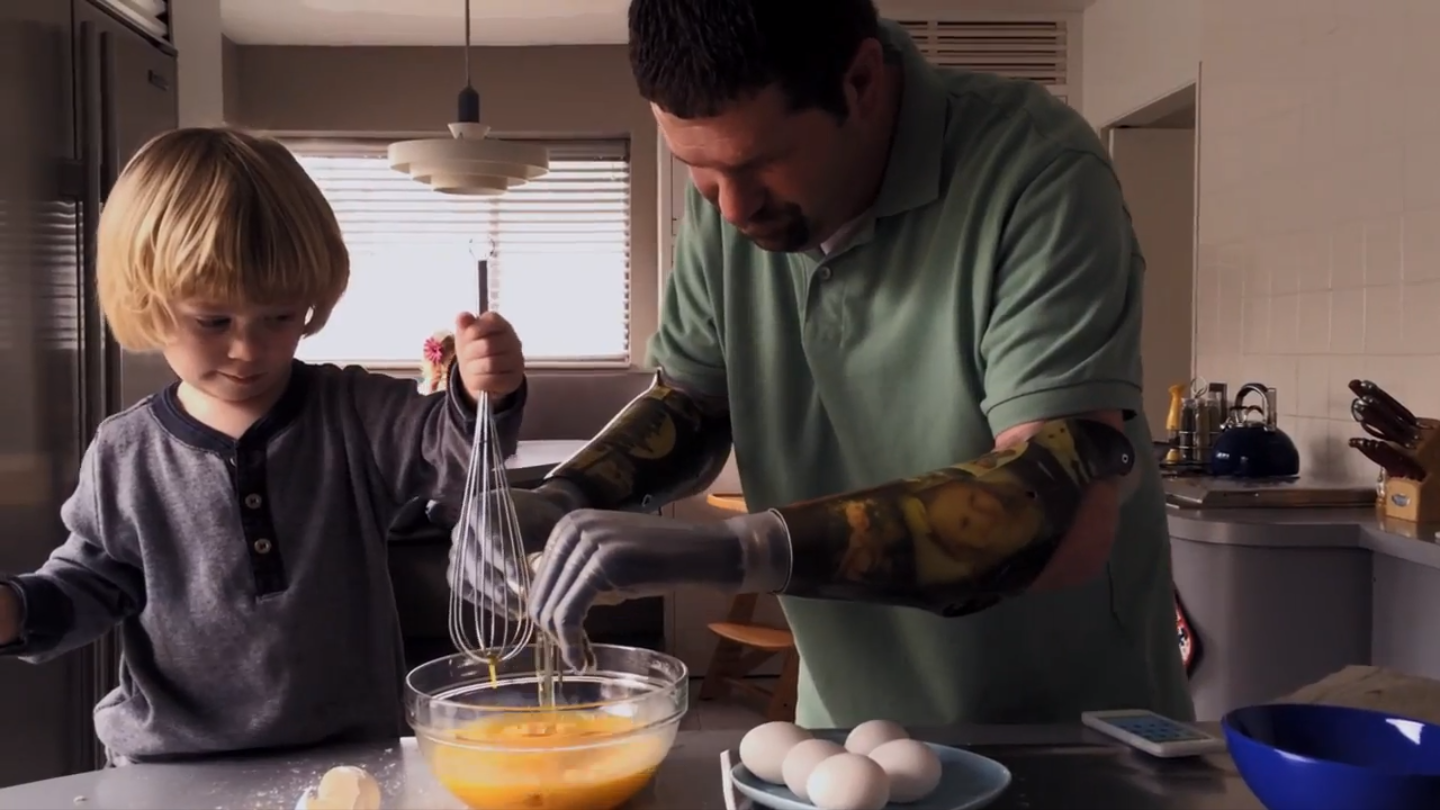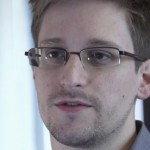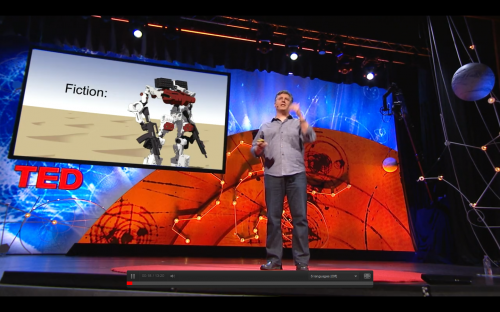 In 1984 Apple rocked the advertising world with a Superbowl commercial directed by Ridley Scott. The commercial depicted a futuristic dystopian dictatorship being challenged by a courageous young heroine with a vision; a not-at-all-subtle metaphor for the soon-to-be-introduced Macintosh computer. The commercial won countless awards when it was aired, and many of the revolutionary features of the Macintosh were quickly adopted by Microsoft, the company that the commercial suggested was the enemy of freedom. Three decades later, Apple is no longer a feisty young rebel.
In 1984 Apple rocked the advertising world with a Superbowl commercial directed by Ridley Scott. The commercial depicted a futuristic dystopian dictatorship being challenged by a courageous young heroine with a vision; a not-at-all-subtle metaphor for the soon-to-be-introduced Macintosh computer. The commercial won countless awards when it was aired, and many of the revolutionary features of the Macintosh were quickly adopted by Microsoft, the company that the commercial suggested was the enemy of freedom. Three decades later, Apple is no longer a feisty young rebel.
This new Apple commercial, filmed completely with iPhones, captures a much more optimistic vision of the role of digital technology in our future. (Ironically, it had a lot in common with Microsoft’s Super Bowl ad.) What will Apple’s (or Microsoft’s) visionary commercials look like 30 years from now?
Read more about the ad at huffingtonpost.com/2014/02/03/apple-mac-ad-30th-anniversary_n_4718255.html.
Category: -Cross Currents
 Edward Snowden made a decision that changed the world. By leaking top secret government documents to the press, he revealed that US surveillance of private and public citizins goes far beyond what most of us had previously imagined. Because of those leaks, people all around the world are asking important questions about the balance between privacy and security in a free society. In a chilling statement to the BBC, Snowden claimed that he’d accomplished his mission by raising those questions. What do you think?
Edward Snowden made a decision that changed the world. By leaking top secret government documents to the press, he revealed that US surveillance of private and public citizins goes far beyond what most of us had previously imagined. Because of those leaks, people all around the world are asking important questions about the balance between privacy and security in a free society. In a chilling statement to the BBC, Snowden claimed that he’d accomplished his mission by raising those questions. What do you think?
theguardian.com/world/2013/dec/24/edward-snowden-channel-4-christmas-day-message
 For most of us, the word “addiction” evokes images of people whose lives are controlled by drugs. But for many people—especially younger men—addictions aren’t about chemicals; they’re about technology. This touching NPR story profiles patients in a clinic that specializes in helping tech addicts retake control of their lives.
For most of us, the word “addiction” evokes images of people whose lives are controlled by drugs. But for many people—especially younger men—addictions aren’t about chemicals; they’re about technology. This touching NPR story profiles patients in a clinic that specializes in helping tech addicts retake control of their lives.
npr.org/2013/10/20/238095806/when-playing-video-games-means-sitting-on-lifes-sidelines
When you get past all of the emotional trappings, your money is nothing more than a symbol of value, and it’s only as good as the trust we place in it. This TED talk suggests that we may be headed into an era of multiple monies.
 The robot drone is rapidly changing the face of war—and peace. In this gripping TED talk Daniel Suarez describes the very real—and very scary—threats robotic weapons pose to civilized society. He makes a compelling case for an international treaty on robotic arms control and a global ban on killer robots.
The robot drone is rapidly changing the face of war—and peace. In this gripping TED talk Daniel Suarez describes the very real—and very scary—threats robotic weapons pose to civilized society. He makes a compelling case for an international treaty on robotic arms control and a global ban on killer robots.
http://www.ted.com/talks/daniel_suarez_the_kill_decision_shouldn_t_belong_to_a_robot.html
What’s it like to be the world Jeopardy champion and lose to a computer? Ken Jennings can tell you, and he does in this engaging TED talk. From his unique perspective, he suggests that we can—and must—make a choice about the kind of future we want to have. Which world do you want to live in?
More about Watson:
A few short decades ago the Surui tribe lived a stone-age lifestyle in the heart of the Brazilian Amazon. Encroachment of modern civilization into their forest threatened their home—and their very existence. But today the tribe is using digital technology to help preserve the rainforest, the people that live there, and the health of our shared planet. This unlikely story is described in this NPR piece and the accompanying YouTube video.
npr.org/2013/03/28/175580980/from-the-stone-age-to-the-digital-age-in-one-big-leap
Crowdfunding—funding a project by asking many people for small contributions—has exploded in popularity because of Internet tools and social networks. Crowdfunding is being used to fund high-tech ventures, microbusinesses, charities, and artistic expressions. In this entertaining, moving TED talk, musician Amanda Palmer of the Dresden Dolls talks about a dimension of crowdfunding that’s rarely discussed: the emotional connections that happen when we ask friends, fans, or strangers for what we need. She argues that Internet tools aren’t as important as our attitude about asking.
ted.com/talks/amanda_palmer_the_art_of_asking.html
More and more, we’re living in a data-driven world. In this excellent little piece that aired recently on NPR’s Fresh Air, Geoff Nunberg gives one of the clearest explanations we’ve seen of what Big Data is and why it’s important to all of us.
http://www.npr.org/2012/12/20/167702665/geoff-nunbergs-word-of-the-year-big-data
The information explosion raises important questions about the free flow of information versus the threat to personal privacy. These two TED Talks present cases for more open information in government and medicine. Heather Brooke uses technology and old-fashioned hard work to expose government corruption; John Wilbanks argues that more medical information sharing is good for all of us. Whether you agree or not, you’ll likely find their stories interesting and thought provoking.
ted.com/talks/heather_brooke_my_battle_to_expose_government_corruption.html
ted.com/talks/john_wilbanks_let_s_pool_our_medical_data.html